Coronavirus: Rishi Sunak urged by MPs to extend self-employed help
- Published
- comments
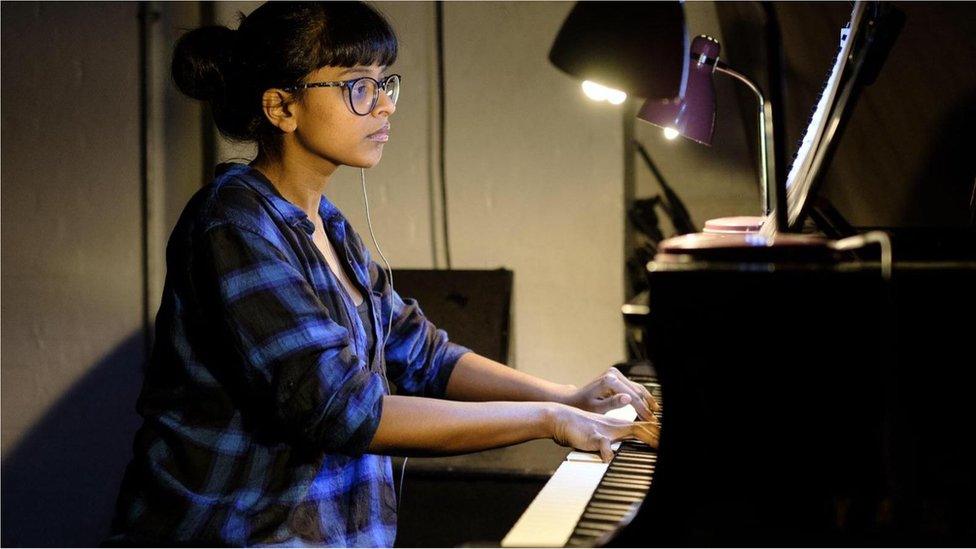
Self-employed musical director Yshani Perinpanayagam says she feels "quite unsafe"
MPs across the parties have urged Chancellor Rishi Sunak to extend support for the self-employed during the coronavirus pandemic.
The government had given qualifying freelancers a grant of 80% of their average profits, up to £2,500, for three months but it ends this weekend.
A similar scheme for furloughed workers has been extended to October.
A petition supporting an extension is also circulating and has gathered 100,000 signatures.
The signers have also sent more than 15,000 emails to their MPs and the Treasury calling for the scheme to be extended.
A cross-party group of 113 MPs signed a letter sent by Labour's Siobhain McDonagh to Mr Sunak.
“This scheme is a lifeline for millions of locked-down workers right across the country," the letter says.
"There are already significant holes in the support, but removing what is already in place would pull the safety net from under the feet of millions of self-employed workers.
"How can it be right for the furloughed scheme to continue but this scheme to not?”
While the letter congratulates the chancellor on the programme, it warns that it is too soon to end government support for the self-employed because many have seen their work dry up.
Earlier in May, the chancellor said the scheme was “under review” but, since then, he has not given any indication of its future. On Thursday, the prime minister also said extending the scheme was "under review”.
'Difficult corner to fight'
When lockdown began, the show at the Royal Shakespeare Company that Yshani Perinpanayagam was musical director for was cancelled - and her work dried up.
She still has some composing and recital work but says she "will not be safe" if the self-employment scheme ends.
Ms Perinpanayagam said she did not know how she is going to feed herself. Her current household expenses have been covered by savings, she said.
She worries that when the rest of the UK returns to normal life but still cannot buy tickets to the theatre, the gap between self-employed artists and the rest of society will widen.
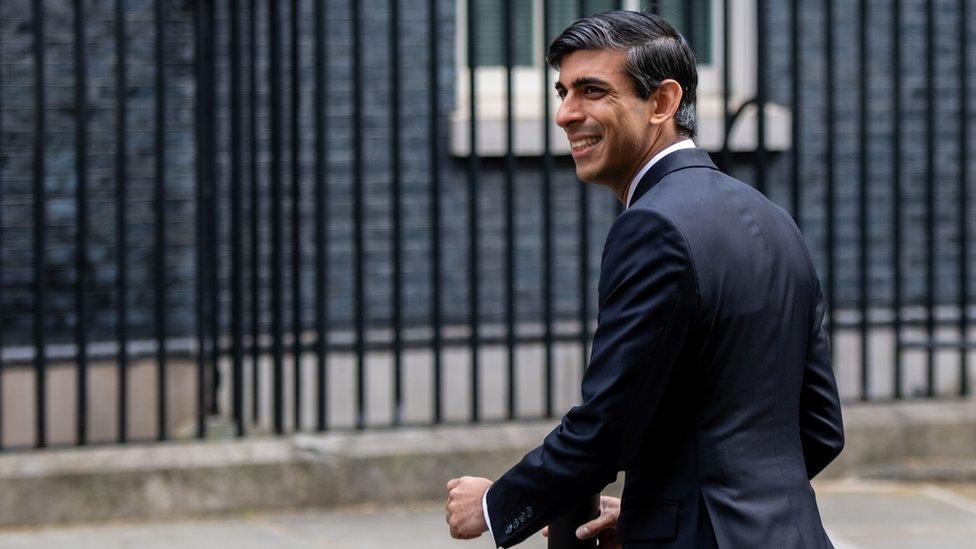
Chancellor Rishi Sunak has been asked to consider extending the scheme
“If people are missing mortgage payments, there is already an understanding that they need help without them having to prove anything. But the self-employed will really have to justify why we can’t pay our bills if the government is not taking a stance that we are worthy of help," she said.
"It’s a very difficult corner to fight."
So far, 2.3 million self-employed, including Ms Perinpanayagam. have signed up to grants totalling £6.8bn.
She worries that despite efforts from creative industries to be more inclusive of people from less wealthy backgrounds, a lack of support from the government will make it impossible for artists to survive if they do not come from a privileged background.
"A lot of people I know have been getting out and delivering pizzas, instead [of their usual work]. There is this feeling that everyone is abandoning ship because of a lack of trust in the government to help them," says Ms Perinpanayagam.
The Association of Independent Professionals and the Self-Employed (IPSE) has also sent a letter to the chancellor calling on him to extend the support scheme.
Its letter also suggests he look again at those who did not qualify for the scheme in the first place.
This included newly self-employed, those who took maternity leave in the last three years and those with limited companies.
IPSE estimates that 1.6 million sole traders and limited company directors have been left out of the self employment scheme, so far.
The letter is co-signed by creative unions and associations including the Creative Industries Federation, Bectu and Equity.

RISK AT WORK: How exposed is your job?
WILL I GET PAID IF I CAN'T WORK? The rules on sick pay, wages and time off
SCHOOLS: When will children be returning?
LOOK-UP TOOL: How many cases in your area?

- Published12 May 2020
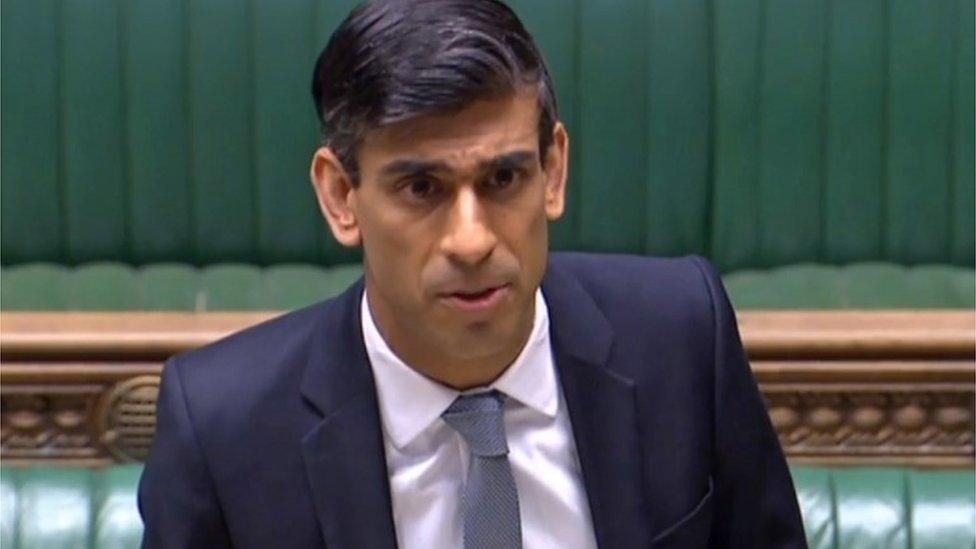
- Published29 May 2020
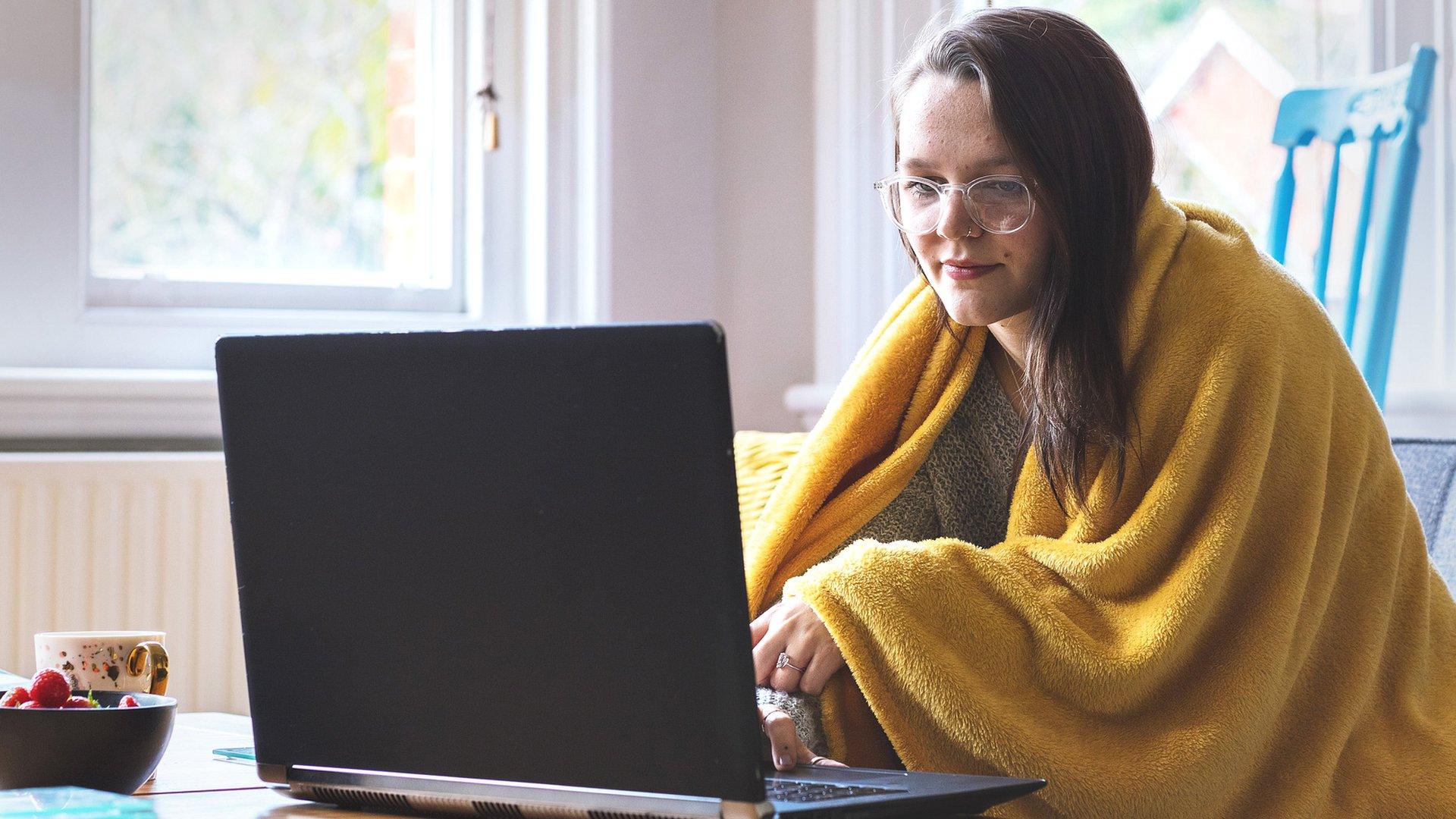
- Published20 March 2020
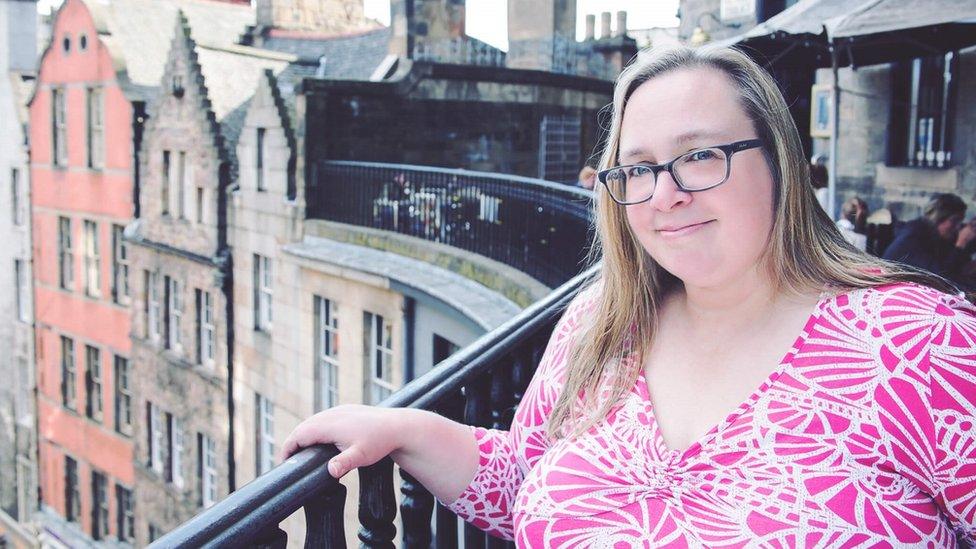
- Published24 March 2020
